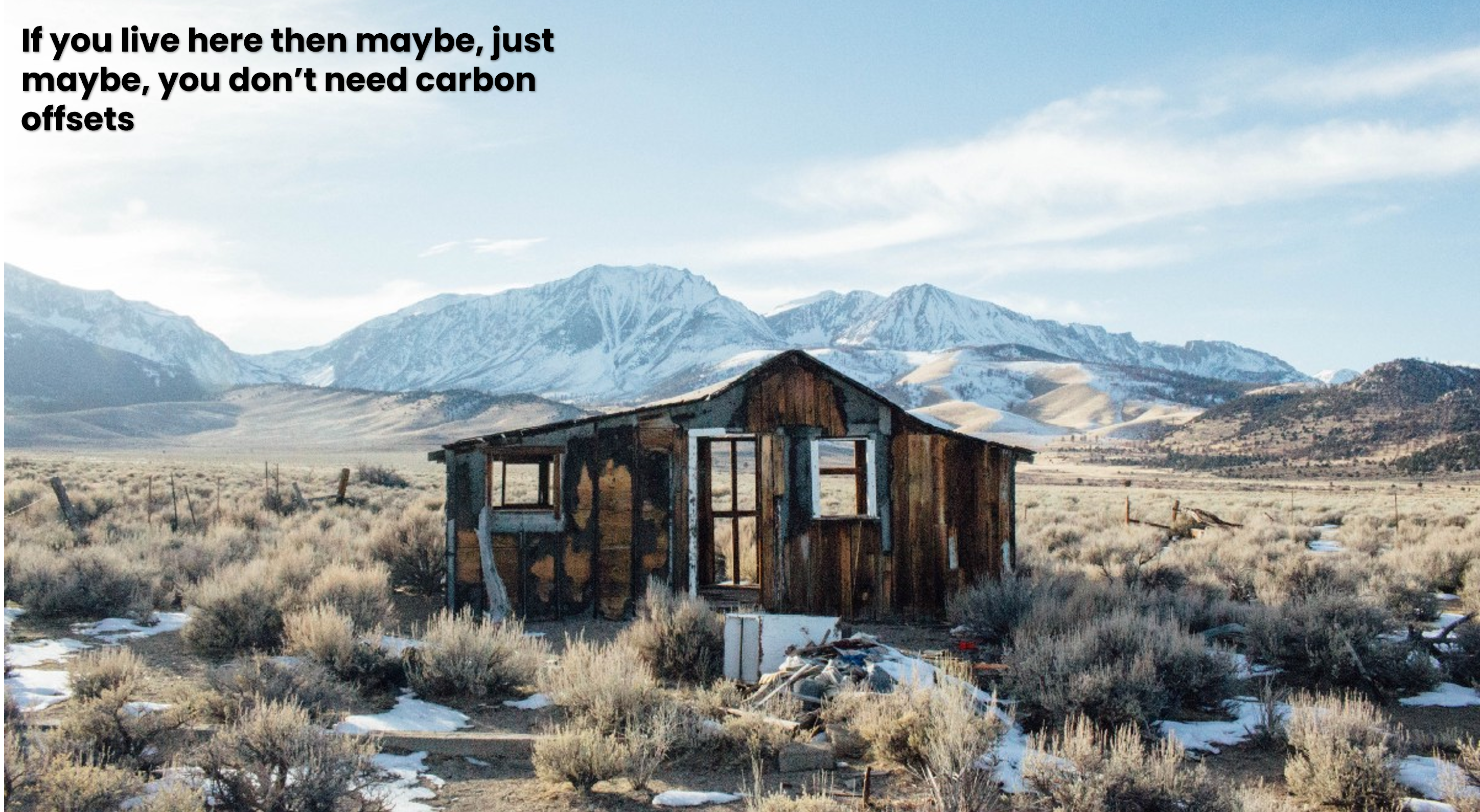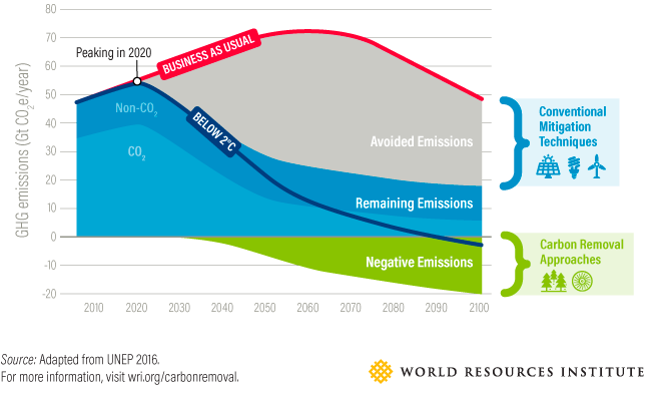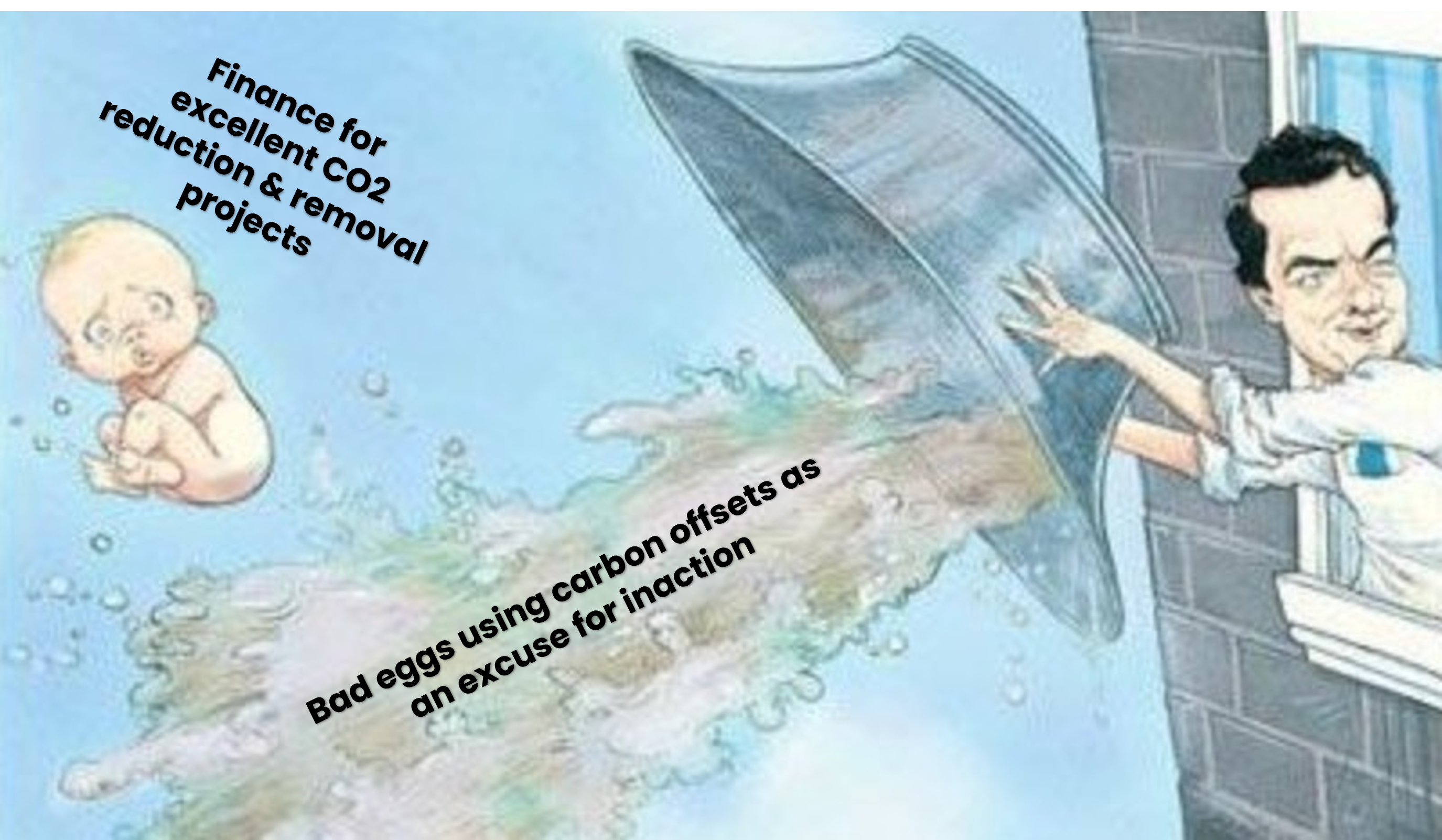The case for carbon offsets, now and for a long time to come
Selva
4 min read
Share
Shame. Shame. Shame.
The argument goes something like this: “Carbon offsets are a scam, they’re just an excuse to keep on polluting”. We should know, we’ve had some generously spirited people tell us so, including one friendly soul who told us we should be ashamed of the work we are doing - guess we’re not on his Christmas card list. You’ve heard it from Greenpeace, you’ve heard it from Greta Thunberg, and you’ve heard it from your sister’s artist mate Aurora.
Honestly though, we love that. It’s a chance to debate, educate, and to test our restraint to avoid getting into a seriously uncool spat on social media.
Anyway, let us explain why carbon offsets are most definitely not a scam, why they are part of the long-term solution, and why we’re actually pretty proud of what we are doing here at Selva.

Offsets 101
So, “carbon offsetting” is any activity that compensates for CO2 emissions by reducing or removing CO2 emissions elsewhere. This can cover a whole host of initiatives such as reforestation, landfill gas capture and solar panels. Generate emissions by driving to the pub in your local village, fund some clean cooking stoves to reduce the equivalent amount in Malawi. 1 – 1 = 0. Easy. Everyone’s happy.
Now, if you stop at that then it’s easy to see the problem people might have with offsetting. Our climate is in one hell of a mess, and desperate times call for desperate measures. The world would be better off if the emissions weren’t spewed in the first place and our thirsty punter cycled to the pub instead. The number one priority must be on genuine emissions reduction efforts and offsets should not impede this. We can all agree on that.
So then, why is carbon offsetting important?
Damn you, reality
This is where reality kicks in, and we think ignoring reality is generally a bad idea. Say our protagonist did decide to jump on his bike. Energy was used to build, transport and sell it. Energy was used to produce the food that ultimately turns its wheels. And then there’s the energy to power the lights down at his local. As renewable energy makes up just 11% of global energy supply (even when dubiously including biomass in that number), energy means emissions.
The energy transition will be driven by fossil fuels before fossil fuels can be driven out by the energy transition.
Many emissions today are unavoidable, no matter how hard we try to reduce them. And, given where technology and culture are in 2021, it’s going to be a long time before sectors like agriculture, aviation and heavy industry fully decarbonise. Let’s also consider the billions of people in emerging economies whose quality of life is still far below acceptable standards. This development will take huge amounts of energy and inevitably involve emissions.
If you want to stop polluting entirely, turn your computer off, start growing your own food and build a mud hut in the middle of nowhere to live in. Then, begin praying that some as-of-yet unproven technology falls from the sky to reunite you with your zero-emissions modern comforts and a clean conscience. Hope is a bad strategy too.
Even generating wind power has a carbon footprint: wind turbines use huge amounts of steel in their body and blades, have concrete foundations, and require long distance heavy transportation. The energy transition will be driven by fossil fuels before fossil fuels can be driven out by the energy transition.

Let’s keep hold of the baby
Somehow we need to compensate for all these stubborn emissions. This compensation is why we talk about “net-zero” rather than just “zero” – some emissions are inevitable and need to be balanced out. This is done by investing in projects that are working hard to remove CO2 emissions elsewhere – see the “negative emissions” in the chart below. For many CO2 removal and reduction projects to be economically viable, they need to package their CO2 impact and sell it as offsets so they can continue their work and reduce/remove more CO2.

Yes, there are unscrupulous offset projects and we certainly need better transparency and regulation to improve standards. But, calls for a blanket rejection of carbon offsetting would choke off the financing for hundreds of amazing projects around the world that are doing great work to contribute to a sustainable future. We need to do everything we can to support and grow these projects, not threaten their lifeblood.
One of our partners, TIST, has planted 22 million trees that have absorbed 8.5 millions of tonnes of CO2, providing livelihoods for over 100,000 farmers in Africa and India. In Iceland, Climeworks has recently started operations at its direct air capture plant in (giant fans sucking CO2 directly out of the air). If the anti-offset brigade got their wish, these projects and many others like them would cease to operate, and much of the incentive to develop new carbon reduction and removal projects and technology would disappear. Talk about throwing the baby out with the bathwater.
A quick note on offsetting as a long-term solution: since the 1800s we have emitted ~2,500 billion tons of CO2 into the atmosphere and it’s mostly all still sitting there. Getting to zero emissions is one thing, we then have to try and undo all the damage that’s already been done and take as much CO2 back out of the sky as we can. It is for this reason that carbon removal offsets (as opposed to reduction offsets which prevent CO2 from being emitted in the first place) like reforestation will be important long after we reach zero emissions.

What we’re trying to say is…
Are carbon offsets effective? Absolutely. Sure, if companies or individuals are using offsets as an excuse for inaction then this is bad news and we'd be the first to call BS. Genuine reduction efforts should always be the priority and sub-standard offset projects must be weeded out through transparency and rigorous standards.
But, we should not demonize the whole practice of offsetting and restrict the flow of finance to crucial environmental projects because of a few bad eggs. Some people use dodgy accountants to evade tax but that doesn’t mean you should never hire an accountant and that all of them are dishonest.
We couldn't be prouder to support our partners. They are people who have chosen to dedicate their careers to protecting the environment and reducing poverty. Scams, they most definitely are not. If the word “offset” has become too dirty for you then think of it as carbon removal, or carbon reduction. That might help.
